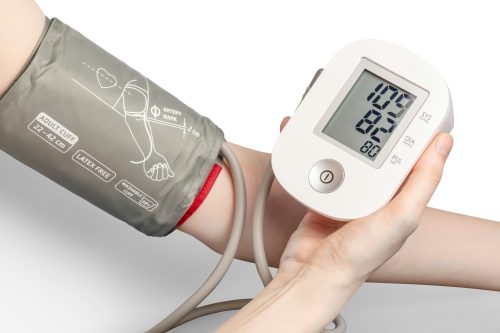When you hear the term metabolic health, you might think of how fast your metabolism works or how easily someone can maintain their weight. While these are important factors, metabolic health actually covers a lot more. It refers to how well your body processes and uses energy, impacting areas like your blood sugar levels, body composition (the ratio of fat to muscle), and even your immune system.
The truth is, most people aren’t metabolically healthy. In fact, only about 12% of Americans are considered to have good metabolic health. That means a lot of people are at risk for conditions like metabolic syndrome, which can increase your chances of heart disease, diabetes, and other serious health problems. So, how do you know if you’re metabolically healthy, and what can you do about it? Let’s break it down in a simple way.
How to Measure Metabolic Health
There are a few main factors that give you a picture of your metabolic health. If several of these are off, you might be more likely to develop metabolic syndrome. Here’s what to watch for:
1. Blood Sugar Levels
Blood sugar (or glucose) levels tell you how well your body handles sugar. Eating poorly, being inactive, and even stress can raise your blood sugar. Over time, high blood sugar makes your body less sensitive to insulin, which can lead to type 2 diabetes.
Healthy range: Before eating, your blood sugar should be below 100 mg/dL. After a meal, it should stay under 140 mg/dL.
 2. Waist Size
2. Waist Size
Your waist size can give clues about your overall health. Having a lot of belly fat (also called visceral fat) around your organs can raise your risk for heart disease and diabetes.
Healthy range: For men, a waist size under 40 inches is ideal, while women should aim for under 35 inches.
3. Cholesterol Levels
Cholesterol can be confusing, but it’s important to know that there are two types: LDL (bad cholesterol) and HDL (good cholesterol). LDL can build up in your arteries, while HDL helps clear it out, keeping your heart healthy.
Healthy range: Total cholesterol should be below 200 mg/dL, and your HDL (the good kind) should be 60 mg/dL or higher.
 4. Blood Pressure
4. Blood Pressure
High blood pressure, or hypertension, can lead to serious issues like heart disease if not controlled. Lifestyle choices, like poor diet and lack of exercise, are major contributors.
Healthy range: Blood pressure should be under 120/80 mmHg.
5. Triglyceride Levels
Triglycerides are fats in your blood. Too many can increase your risk of heart disease, stroke, and metabolic syndrome.
Healthy range: Triglycerides should be below 150 mg/dL.
 6. Body Composition
6. Body Composition
Your body composition is the balance of fat and muscle. Too much fat, especially around your organs, can lead to inflammation and increase your risk of diseases. Building and maintaining lean muscle can help improve your metabolic health.
Healthy body fat range: For women aged 20−39, it’s 21-32%, and for men, 8-19%.
Metabolic Health and the Immune System
There’s a strong connection between your metabolic health and your immune system. When your metabolic health is poor (due to high blood sugar or too much body fat), it can weaken your immune system. In Fact, your Metabolism is part of your Immune system. Poor metabolic health makes it harder for your body to fight off infections and increases inflammation. On the other hand, taking care of your metabolic health can boost your immune system and help protect you from illness.
How to Improve Your Metabolic Health
The good news is that improving your metabolic health doesn’t require drastic changes. Small, steady adjustments to your lifestyle can make a big difference. Here’s how:
 1. Calculate Your BMI
1. Calculate Your BMI
Your Body Mass Index (BMI) helps you figure out if you’re at a healthy weight for your height. A BMI between 18.5 and 24.9 is considered healthy. You can find many BMI calculators online.
2. Focus on a Balanced Diet
Eating a healthy diet can help keep your blood sugar, cholesterol, and triglyceride levels in check. Focus on eating lots of fiber, lean protein, and healthy fats, and avoid processed foods, sugary drinks, and unhealthy fats like trans fats.
3. Stay Active
Exercise is a big part of keeping your metabolic health in check. Aim for at least 30 minutes of physical activity each day, whether that’s walking, cycling, or strength training.
 4. Eat More Fruits and Vegetables
4. Eat More Fruits and Vegetables
Fruits and vegetables are packed with vitamins, minerals, and antioxidants. The more colorful your plate, the better! These foods help lower inflammation and support both your metabolic and immune health.
5. Get Enough Sleep
Sleep is essential for regulating your metabolism. Not getting enough sleep can lead to weight gain and higher risks of metabolic diseases. Aim for 7-9 hours of sleep each night to keep things running smoothly.
6. Build Lean Muscle
Strength training helps you build muscle, which burns more calories than fat—even when you’re resting. Adding muscle can help increase your metabolism and improve your overall body composition.
How intelligent molecules can help
For those looking to boost their metabolic health, 4Life Transfer Factor® Metabolite™ offers a carefully formulated blend of ingredients aimed at supporting normal thyroid function and overall energy metabolism. This supplement is designed to assist the body in maintaining a healthy metabolic rate while also providing protection against oxidative stress. By supporting thyroid hormone production and cellular health, Metabolite™ promotes balanced energy levels, helping you feel more energized and aiding in weight management. It’s a smart way to support your body’s natural metabolic processes while also safeguarding against the stresses of modern life.
Conclusion
Metabolic health isn’t just about losing weight. It’s about making sure your body is working efficiently, from your blood sugar to your cholesterol levels and beyond. By taking small steps like improving your diet, staying active, and getting enough sleep, you can improve your metabolic health and lower your risk for serious health problems like diabetes and heart disease.
You have the power to improve your metabolic health by focusing on your diet, exercise routine, and sleep habits.
The journey to better health is a gradual one, but the rewards are worth it—both for your body and your overall quality of life.
With love and positivity,
Jennifer🙏🏻💛





